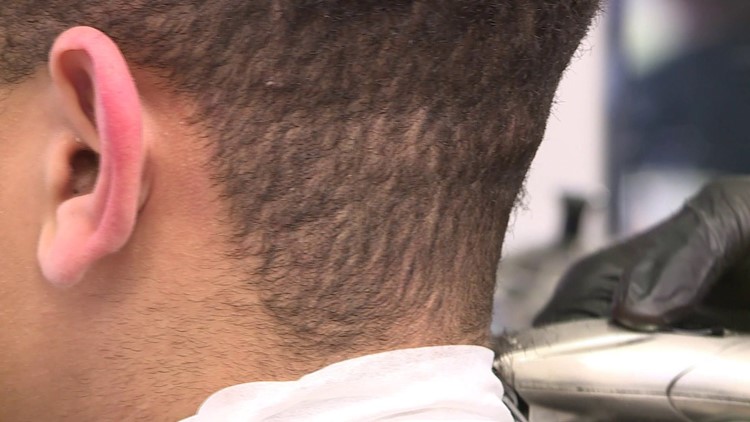Little Rock, Ark. (KFSM) — Senate Bill 410 (SB410) aims to make it easier to become a barber in Arkansas, but barbers from around the state say the bill would hurt the industry.
The bill looks to repeal the Arkansas Barber Law, abolish the Arkansas Board of Barber Examiners and amend the law governing the practice of cosmetology.
SB410 was proposed by Sen. John Cooper (R-Jonesboro).
Cooper is a chairman of Gov. Asa Hutchinson’s Red Tape Reduction Working Group. The group was appointed to study the state’s occupational licensing requirements with a goal of identifying any regulations that may be an unnecessary barrier to those who want to enter a trade, according to Gov. Asa Hutchinson.
5NEWS spoke with Sen. Cooper on Friday, March 1 about the bill.
“For the last year, we have been studying red tape reduction in the state,” Cooper said. “This is one issue we have been looking at, among several of them. We’ve actually been looking at all boards concerning the over-regulation in the state.”
Cooper claims Arkansas is one of the most over-regulated states in the U.S.
He says there have been some boards in the state that have voluntarily come forward with suggestions on how to improve their systems.
“Several other boards need to look internally, and look at ways to make their business operate smoother for consumers and people looking to enter the occupation.”
Cooper says that’s what he is trying to accomplish with SB410.
The proposed bill touts the streamlining of more jobs and lower cost of services from barbers by not requiring them to earn a license.
Cooper says requiring barbers to obtain a license limits the access to jobs, increases the cost of services and limits geographical mobility for those in the profession.
Under SB140, barbers would only be required to register with the Department of Health, paying a $50 registration fee along with a $2,000 surety bond.
Licensed cosmetologist would not be required to file registration or bond if the cosmetologist practices barbering as part of its services under the bill.
Currently, to obtain a barber license in Arkansas candidates must complete 1,500 hours of training and have them certified to the State Board of Barber Examiners. They must also pass a practical exam along with written and oral tests.
The Arkansas Barber Board has a long history in the Natural State. It was established over 80 years ago in 1937.
According to their website, The Arkansas Barber Board:
- Regulate the practice of barbering.
- Develop and maintain a curriculum of study.
- Schedule and conduct examinations.
- Register and license applicants.
- Regulate sanitation of barbers, barber schools and establishments.
- Adopt rules and regulations.
- Regulate and enforce the Laws, Rules, and Regulations set forth by the Board.
- Impose fines for violations of regulations of the Board.
5NEWS spoke with local barbers who stated the bill would harm the industry not because less experienced barbers would be cutting hair, but because it would eliminate the safety and sanitation practices the Arkansas Barber Board sets for the industry.
They went on to say that eliminating the State Board of Barber Examiners would cut jobs across the state, and reduce the money Arkansas barber schools put back into the state.
5NEWS' content partner KATV spoke with barbers in central Arkansas who say the legislation undercuts the professional art of cutting hair.
"It definitely takes the professionalism, and it definitely takes the craft out of what we do, and it just puts us in layman's terms."
Dozens of barbers took to the Arkansas State Capitol on Wednesday (Mar. 6) to protest SB410 on the day it was set to be discussed.
After talking with barbers, Sen. Cooper says he will make some amendments to the bill.
The bill will be presented again on Wednesday, March 13.
Click here to view the bill as it was first presented.





